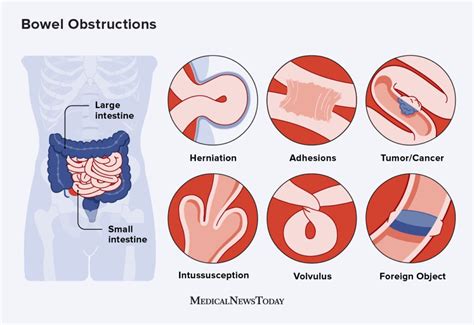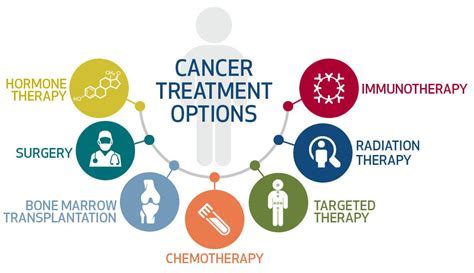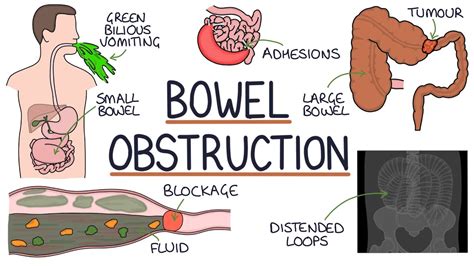Intro
The human digestive system is a complex and highly specialized process that is essential for the proper functioning of the body. One of the most critical parts of this system is the bowel, which is responsible for absorbing nutrients from the food we eat and eliminating waste products. However, sometimes the bowel can become blocked, leading to a range of serious health problems. In such cases, a blocked bowel operation may be necessary to restore normal bowel function and prevent further complications. The importance of this topic cannot be overstated, as bowel blockages can be life-threatening if left untreated.
Bowel blockages can occur for a variety of reasons, including hernias, adhesions, tumors, and twisting of the bowel. These blockages can cause severe abdominal pain, nausea, vomiting, and constipation, and can lead to serious health complications if not treated promptly. In some cases, bowel blockages can be treated with medication or other non-surgical methods, but in many cases, surgery is necessary to remove the blockage and restore normal bowel function. Understanding the causes, symptoms, and treatment options for bowel blockages is crucial for individuals who are at risk of developing this condition.
The decision to undergo a blocked bowel operation is not one that should be taken lightly, as it is a major surgical procedure that carries risks and complications. However, for many individuals, surgery is the only way to restore normal bowel function and prevent further health problems. The good news is that with advances in medical technology and surgical techniques, blocked bowel operations are generally safe and effective, and most individuals are able to make a full recovery after surgery. By understanding the benefits and risks of blocked bowel operations, individuals can make informed decisions about their healthcare and take steps to protect their overall health and well-being.
Causes of Bowel Blockages

Symptoms of Bowel Blockages
The symptoms of bowel blockages can vary depending on the location and severity of the blockage, but common symptoms include severe abdominal pain, nausea, vomiting, and constipation. In some cases, individuals may experience diarrhea or bloody stools, and may have a fever or feel generally unwell. If the blockage is not treated promptly, it can lead to serious health complications, including bowel ischemia, which occurs when the blood supply to the bowel is cut off, and bowel perforation, which occurs when the bowel ruptures, allowing bacteria to leak into the abdominal cavity.Treatment Options for Bowel Blockages

Blocked Bowel Operation
A blocked bowel operation, also known as a bowel obstruction surgery, is a major surgical procedure that is used to treat bowel blockages. The surgery involves making an incision in the abdomen and locating the blockage, which is then removed or repaired. In some cases, the affected portion of the bowel may need to be removed, and the remaining portions of the bowel may need to be reconnected. The surgery is typically performed under general anesthesia, and can take several hours to complete.Risks and Complications of Blocked Bowel Operations

Recovery from Blocked Bowel Operations
The recovery from a blocked bowel operation can take several weeks to several months, depending on the individual's overall health and the severity of the surgery. During this time, individuals may need to follow a special diet and avoid heavy lifting or strenuous activities. In some cases, individuals may need to take medication to manage pain and prevent infection. It is essential to follow the surgeon's instructions carefully to ensure a smooth and successful recovery.Prevention of Bowel Blockages

Lifestyle Changes after Blocked Bowel Operations
After a blocked bowel operation, individuals may need to make lifestyle changes to reduce their risk of developing further bowel problems. These can include eating a special diet, avoiding heavy lifting or strenuous activities, and managing stress. Individuals should also attend follow-up appointments with their surgeon to ensure that they are recovering properly and to address any concerns or questions they may have.Conclusion and Next Steps

We invite you to share your thoughts and experiences with blocked bowel operations in the comments section below. Your input can help others who are going through a similar experience. You can also share this article with others who may be interested in learning more about this topic.
What are the common causes of bowel blockages?
+Bowel blockages can occur due to hernias, adhesions, tumors, and twisting of the bowel.
What are the symptoms of bowel blockages?
+The symptoms of bowel blockages include severe abdominal pain, nausea, vomiting, and constipation.
How are bowel blockages treated?
+Bowel blockages can be treated with medication or surgery, depending on the underlying cause and severity of the blockage.
